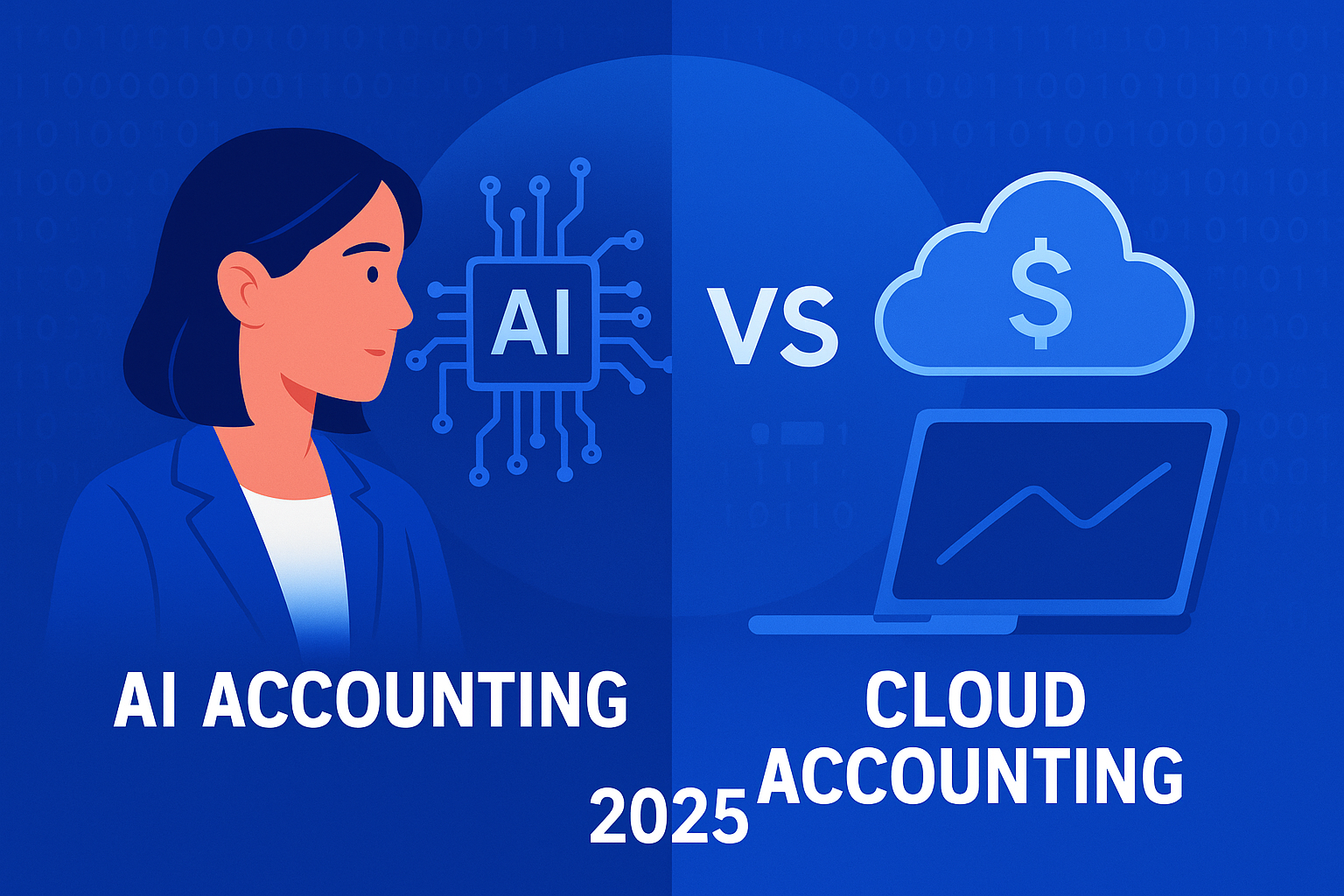
In 2025, almost every small and medium-sized business has moved its financial operations online.
But while cloud accounting is now the norm, a newer, more advanced system is taking the lead: AI accounting.
Both seem digital, both automate parts of bookkeeping — so what’s the real difference?
And why are forward-thinking SMEs shifting from traditional cloud software to AI-driven platforms like ccMonet?
Let’s break it down.
Cloud accounting platforms changed the way businesses managed finances in the early 2010s.
They replaced desktop software with online systems, enabling users to:
For SMEs, this was a major leap — replacing paperwork and local backups with convenience and mobility.
However, by 2025, most businesses have already reached the limit of what cloud accounting can do.
It still relies heavily on manual input, human categorization, and delayed updates — meaning data isn’t always accurate or real-time.
Cloud accounting solved “where” you do accounting.
But it didn’t change “how” accounting is done.
Where cloud systems depend on users to enter and organize data, AI accounting systems take over those tasks entirely.
AI doesn’t just host your books — it does the work for you.
With advanced data recognition, pattern learning, and automation, platforms like ccMonet now:
In short, cloud accounting digitizes; AI accounting intelligently automates.
Traditional cloud software records what happened.
AI accounting shows what’s happening — and what’s about to happen next.
With real-time dashboards and AI-powered insights, ccMonet allows business owners to:
This difference matters.
Cloud accounting helps you stay organized.
AI accounting helps you make faster, smarter financial decisions.
Cloud systems rely on users to manually enter and check data — which means mistakes can still slip through.
AI, however, learns from patterns and validates data automatically.
In ccMonet, every transaction is checked by AI + expert review — ensuring that the data is both accurate and compliant.
No more duplicated invoices, misclassified receipts, or end-of-month reconciliation chaos.
The result?
More reliable numbers, cleaner reports, and fewer surprises during audits.
As businesses grow, traditional cloud tools often require additional users, plugins, or outsourced help — which increases cost and complexity.
AI accounting scales differently.
Because automation replaces manual labor, SMEs can process 10x more transactions without expanding their finance team.
This makes AI-driven platforms like ccMonet not just efficient, but also cost-effective for scaling businesses.
Cloud systems are great at storing and summarizing data — but they stop short of analysis.
AI goes further.
With built-in financial intelligence, ccMonet can interpret data and alert owners proactively.
For example:
AI turns accounting from a reactive chore into a strategic decision-making tool.
Regulations are getting stricter across regions, especially in Southeast Asia.
While cloud systems help with document storage, AI ensures ongoing compliance by structuring data consistently and keeping everything audit-ready.
With ccMonet’s AI-backed processes and expert oversight, businesses stay compliant automatically — without needing to chase missing documents or reformat reports at tax time.
FeatureCloud AccountingAI AccountingData EntryManualAutomatedCategorizationUser-drivenAI-drivenAccuracyDependent on human inputAI + Expert verifiedInsightsStatic reportsReal-time, predictiveCost EfficiencyScales with team sizeScales with automationComplianceManual checksBuilt-in, continuousAccessibilityOnline accessOnline + Intelligent automation
Cloud accounting was the first step toward modernization.
AI accounting is the leap forward.
It doesn’t just move your accounting online — it transforms it into a smart, self-learning, and insight-driven system that supports growth without added complexity.
And for SMEs ready to take that step, ccMonet makes AI accounting simple, accurate, and human-backed — giving you real-time clarity without needing a finance background.
If your business is ready to move beyond manual uploads and delayed reports,
👉 Discover how ccMonet brings AI accounting to life — automating your workflow, enhancing accuracy, and helping you scale smarter in 2025 and beyond.